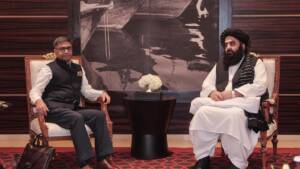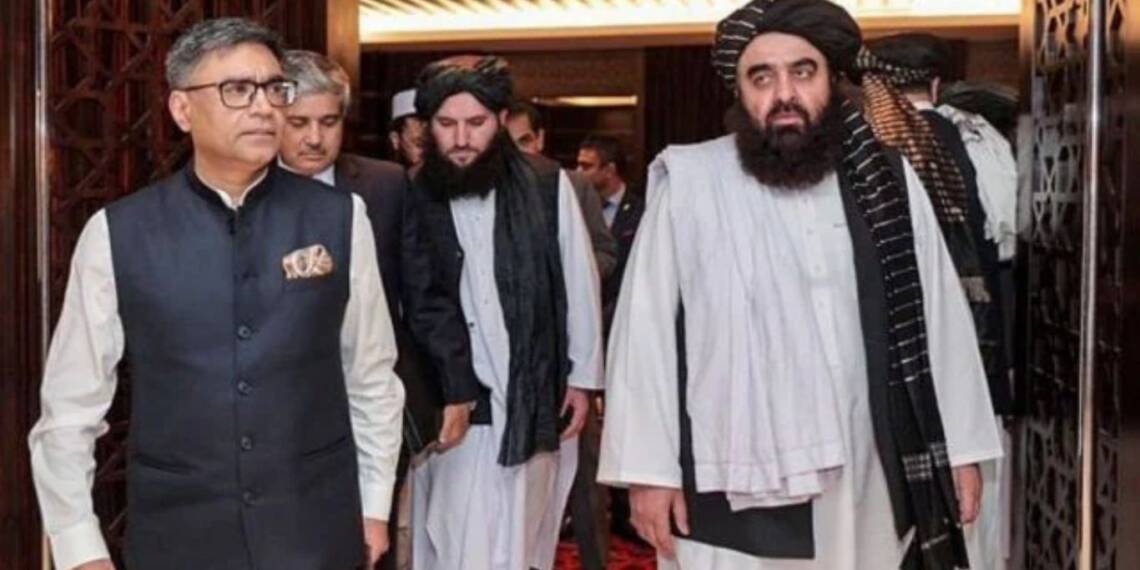On Wednesday, the Foreign Secretary of India, Vikram Misri met with the acting Foreign Minister of Afghanistan, Amir Khan Muttaqi, in Dubai. According to a statement from India’s Ministry of External Affairs, the two sides discussed a variety of bilateral and regional developments.
Misri emphasized India’s commitment to continue providing humanitarian and development aid to the Afghan people. The Afghan foreign minister praised India for its continued support for Afghanistan.
The Indian spokesperson said, “In view of the current need for development activities, it was decided that India would consider engaging in development projects in the near future, in addition to the ongoing humanitarian assistance programme.”
The talks also included discussion on the crucial Chabahar Port. The Chabahar port is a seaport in Chabahar located in southeastern Iran, on the Gulf of Oman. It serves as Iran’s only oceanic port. India has invested heavily in the development of the port. India and Iran first agreed to plans to further develop the port in 2003, but did not do so on account of sanctions against Iran.
In May 2016, India and Iran signed a bilateral agreement in which India would refurbish one of the berths at Shahid Beheshti port, and reconstruct a 600 meter long container handling facility at the port. The port is partly intended to provide an alternative for trade between India and Afghanistan as it is 800 kilometers closer to the border of Afghanistan than Pakistan’s Karachi port. In October 2017, India’s first shipment of wheat to Afghanistan was sent through the Chabahar Port. In December 2018, India took over the port’s operations.

In the recent meeting India and Afghanistan have agreed to promote the use of the port to enhance trade and economic activities. The port would also be used for humanitarian assistance for Afghanistan.
India has also made investments in infrastructure and humanitarian and civil society engagements in order to assist Afghanistan. India had sent multiple shipments, including 50,000 metric tonnes of wheat, 300 tons of medicine, 27 tons of earthquake relief aid, 40,000 litres of pesticides, 100 million polio doses, 1.5 million doses of Covid vaccine, 11,000 units of hygiene kits for the drug de-addiction programme, 500 units of winter clothing and 1.2 tons of stationery kits.
On 06 January 2025, in response to media queries regarding airstrikes on Afghan civilians, the Official Spokesperson of external affairs India, Randhir Jaiswal, said, “We have noted the media reports on airstrikes on Afghan civilians, including women and children, in which several precious lives have been lost. We condemn any attack on innocent civilians. It is an old practice of Pakistan to blame its neighbours for its own internal failures. We have also noted the response of an Afghan spokesperson in this regard.”
India has understood that the Taliban government is not going anywhere, and not engaging them may hurt the security interests and investment of the entire region for a long time. The engagement on various levels shows the pragmatic approach of India’s foreign policy to bring peace and prosperity to the region and beyond.








